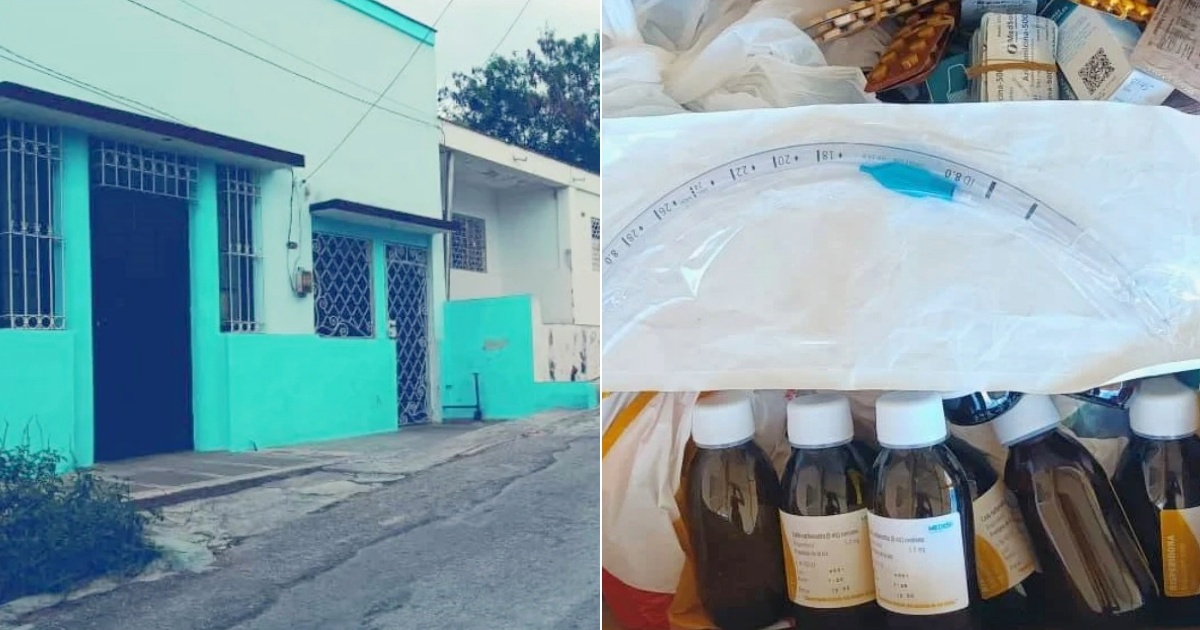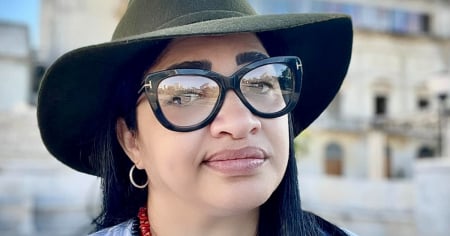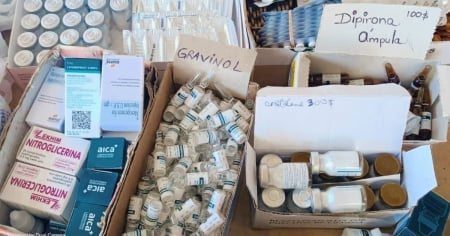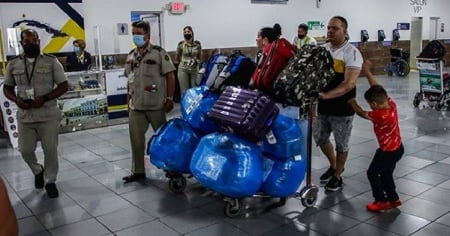
Related videos:
The Cuban who was recently arrested for having an arsenal of medications that he was selling informally has been identified as Kleisy Suárez.
The man is a licensed Physical Therapist, father of two daughters, and a Jehovah's Witness, according to the digital portal 14yMedio.
The arrest took place at his residence -located on Cocal Street, between Tívoli and Concordia- where the Police seized a significant quantity of drugs and medical supplies, some imported and others produced locally.
The products -in a context of severe drug shortages in the country- would be promoted through social media and then sold at home.
The case of Kleisy Suárez has shocked the people of Manzanillo—according to the source mentioned—because he was a man who, despite everything, was well-liked and known among many residents of the municipality.
From family support to an informal business
Initially, Suárez only had medications sent by his family from the United States.
However, over time, it also began to offer nationally produced medications, whose origin is currently under investigation.
Among the products he sold were antibiotics, antiparasitics, analgesics, anti-inflammatories, antihistamines, medications for blood pressure and heart conditions, eye drops, ointments, syringes, and suturing materials.
Their prices were governed by the informal rates of the black market, although, according to customer testimonials - cited by 14yMedio - they tended to be lower compared to other similar offers.
Divided opinions in Manzanillo
The arrest of Suárez has generated mixed opinions among the residents of Manzanillo.
While some criticize the resale of scarce medications and profiting from others' needs, others believe that informal pharmacies have, in many cases, been the only alternative to access essential medical treatments.
“I don’t think he did it out of greed, but out of necessity”, says José, a neighbor of the arrested individual.
Suárez worked in a Rehabilitation Center, but his salary was not enough to support his wife and daughters, which led him to sell the medications that were sent to him from abroad.
For some, their mistake was expanding their business with state-sourced medications.
Scapegoat in the midst of the crisis?
The shortage of medications in Cuba has forced many patients to seek informal alternatives to obtain their treatments.
"Thanks to him, people were able to find solutions because the State could not meet the demand for medicines, especially in the midst of the epidemiological crisis," comments another resident of Manzanillo.
"As far as I know, that sale was never legal, but if it disappears, people will fare even worse because there is still no way to stock the pharmacies even with the basics. Hospitals are the same: you have to bring everything from medication to syringes because they never have anything," he adds.
Many fear that Suárez's case will be used to exemplify the fight against the black market, without it meaning a real solution to the shortage of medicines in the country.
"In his eyes, it was clear that he was neither a bad person nor ostentatious," concludes someone who knew him, concerned about his future.
However, the discovery has also sparked great outrage among the population, which is facing a crisis of shortages in hospitals and pharmacies.
After the announcement, social media was flooded with comments denouncing corruption within the Cuban healthcare system and calling for a thorough investigation into the matter.
Scarcity of medications, a national crisis
The shortage of medications in Cuba has become one of the most severe crises facing the population, impacting both individuals with chronic illnesses and those in need of urgent treatments.
The shortage of basic supplies in pharmacies and hospitals has forced many Cubans to rely on donations from abroad, the black market, or exchanges with neighbors to obtain essential medicines such as antibiotics, pain relievers, and drugs for cardiovascular diseases or diabetes.
This health crisis, exacerbated by a shortage of raw materials and the inefficiency of the state production and distribution system, has caused treatable diseases to worsen and has increased the incidence of preventable deaths.
The Cuban government has acknowledged the shortage but attributes the crisis to external factors, while experts and citizens point to poor management, corruption, lack of investment, and the centralization of the pharmaceutical sector as the fundamental causes of the supply issues.
At the same time, prices in the informal market have skyrocketed, leaving the most vulnerable sectors in a critical situation.
The desperation to obtain medication has led many families to turn to support networks abroad or to solidarity campaigns organized by the diaspora, reflecting the deep crisis of a healthcare system that, in theory, guarantees free services, but in practice cannot provide even the most basic needs for its citizens.
Frequently Asked Questions About the Seizure of Medications in Manzanillo
Who is Kleisy Suárez and why was she arrested?
Kleisy Suárez is a Cuban licensed in Physical Therapy who was arrested for having an illegal drug stash in his house. These medications were being sold informally due to the severe shortage in the country.
What types of medications were found in Kleisy Suárez's house?
In the home of Kleisy Suárez, the police seized a variety of medications, including antibiotics, pain relievers, anti-inflammatories, antihistamines, eye drops, and surgical materials. These medications were both imported and domestically produced.
Why is there a shortage of medications in Cuba?
The shortage of medications in Cuba is due to several factors, including the lack of raw materials, the inefficiency of the state production and distribution system, and corruption. The crisis has forced many Cubans to rely on the black market to obtain essential medications.
How has the population of Manzanillo reacted to Suárez's arrest?
The population of Manzanillo has expressed divided opinions. Some criticize the resale of medications due to scarcity and profit, while others argue that informal pharmacies are a necessary alternative for accessing medical treatments.
Filed under:





